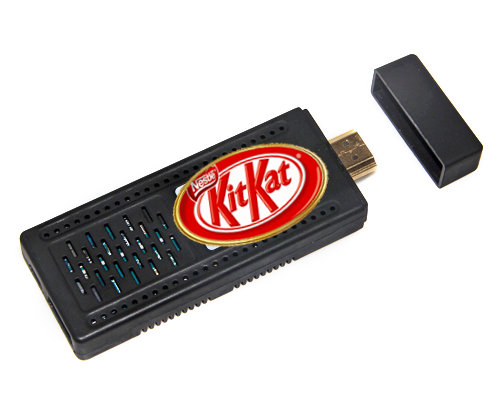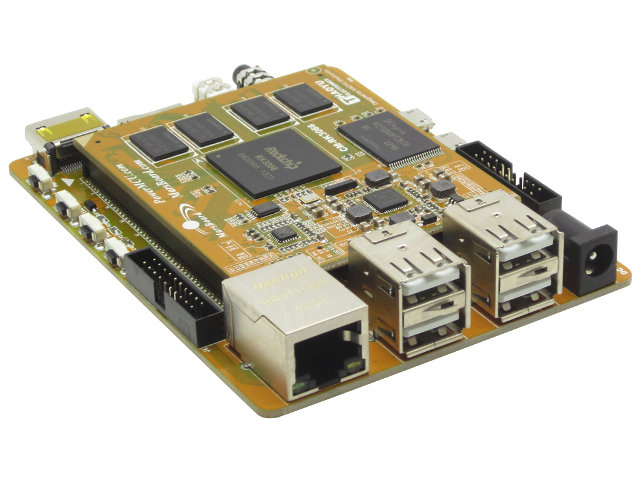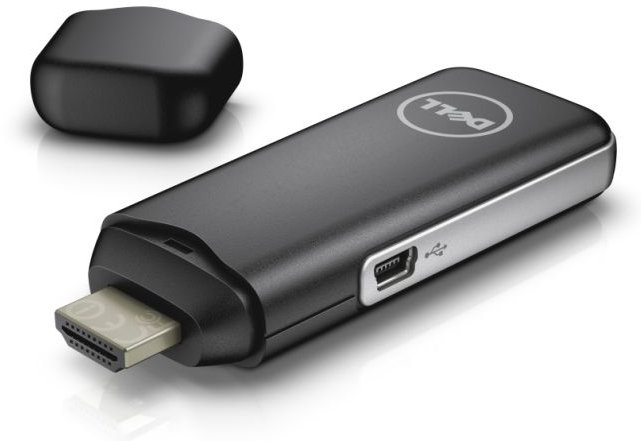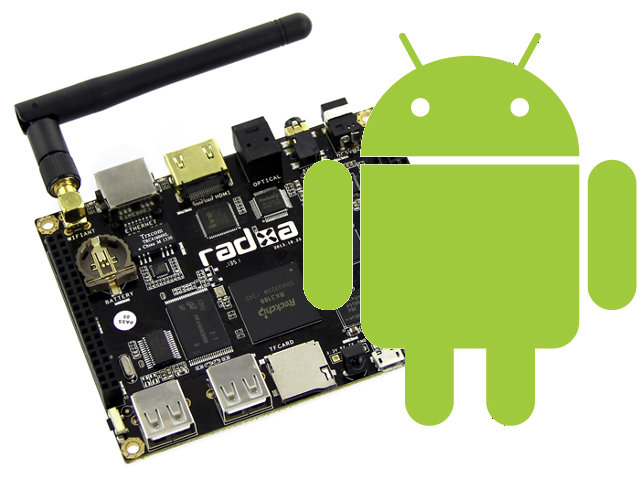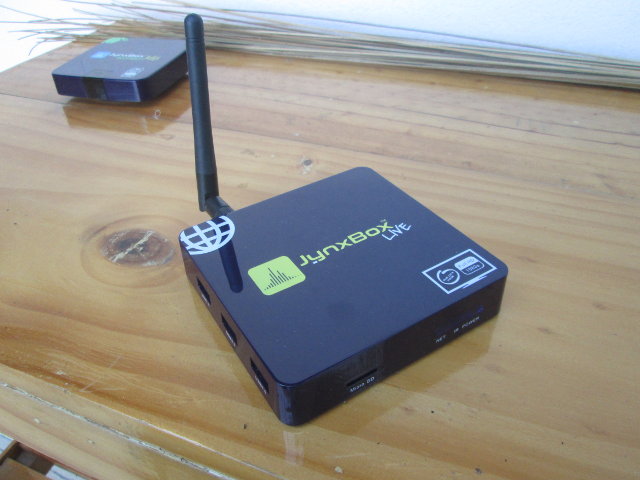Linus Torvalds announced the release of Linux Kernel 3.15 last Sunday: So I ended up doing an rc8 because I was a bit worried about some last-minute dcache fixes, but it turns out that nobody seemed to even notice those. We did have other issues during the week, though, so it was just as well. The futex fixes and cleanups may stand out, but as usual there’s various other random fixes since rc8 in there too: mainly drivers (drm, networking, sound, usb etc), networking, scheduling and perf tooling. But it’s all been fairly small and quiet, which *may* of course be due to the fact that last week was also the first week of the merge window for 3.16. That might have distracted some developers. I’m not entirely convinced I liked the overlap, but it seemed to work ok, and unless people scream really loudly (“Please don’t _ever_ do that again”) and give good […]
How to Upgrade Firmware for Rockchip RK3066, RK3188, RK3328, RK3288, RK3399 Devices with the Command Line in Linux
Previously I wrote an article entitled “How to Flash Rockchip RK3066 / RK3188 Firmware in Linux” explaining how to use a graphical tool called RkFlashKit to upgrade firmware on Rockchip devices using a Linux computer. This tool had some limitations, and it would just have a subset of features of RkAndroidTool (Windows), and it was not possible to flash “update.img” type of firmware which are often provided and flashed with RkBatchTool in Windows. Luckily there’s now a command line tool called upgrade_tool that allows you to flash the “update.img” firmware files directly from Linux. I’ve already shown how to use it with Radxa Rock, but it’s buried with other instructions, so I’ve decided to make a separate post. This has been tested in Ubuntu 14.04 with Radxa Rock (RK3188) and Measy U2C (RK3066). Ready? Let’s start by downloading and extracting upgrade_tool. You may want to add the installation path to […]
Android 4.4 Kitkat Beta Firmware for Ugoos UG802 mini PC (Rockchip RK3066)
When you purchase a Chinese Android gadget, or most Android gadgets for that matter, you expect to have a few firmware updates within a year or so at best. But to my surprise, Ugoos has released an Android 4.4 Kitkat (Beta) firmware for their UG802 mini PC / TV stick that started selling in summer 2012 with Android 4.0. That means your “old” device(s) could get a performance boost, as well as some neat new features, thanks to Android Kitkat. The firmware is beta however, so be aware that there may still be a few bugs. The firmware file (Allminipc_ug802_RT8188_4.4_720p.img) is packaged together with RKBatchTool and the Windows drivers in Allminipc_ug802_RT8188_4.4_720p.rar. You can follow RK3188 firmware update instructions, skipping the downloads since everything you need is included, to perform the upgrade. If you’d rather use Linux, you might be able use upgrade_tool, enter recovery mode, and run:
|
1 2 |
sudo ./upgrade_tool lf sudo ./upgrade_tool uf Allminipc_ug802_RT8188_4.4_720p.img |
One of […]
$37 GK328 Android mini PC Powered by Rockchip RK3028 Dual Core Processor
Rockchip RK3028 is a low cost dual core Cortex A9 processor pin-to-pin compatible with RK2928 single core Cortex A9, I first heard about at Hong Kong Electronics Fair 2013. It’s now found in a few kids tablets, as well as GK328, an Android 4.2 HDMI TV dongle, that sells for about $37, or a few dollars cheaper than similar AllWinner A20 or Rockchip RK3066 based devices. GK328 specifications: SoC – Rockchip RK3028 dual core Cortex A9 @ 1.0 GHz with Mali-400 GPU System Memory – 512MB RAM Storage – 4GB NAND flash + microSD card slot Video & Audio Output – HDMI Connectivity – 802.11b/g/n Wi-Fi USB – 1x USB HOST 2.0, 1x micro USB OTG, 1x micro USB for power Misc – Fn button (for recovery?) Power – 5V/1A via micro USB port The device runs Android 4.2 and sells with a power adapter, a USB cable, an HDMI […]
$60 MarsBoard RK3066 (Partially) Open Source Hardware Development Board Supports Android & PicUntu
Until now if you wanted a low cost Rockchip development board you’d have to go with Radxa Rock (Quad core RK3188) or WaxBerry Pi2 (Dual core RK3066). Thanks to Haoyu Electronics , the company who made MarsBoard A10, there’s now another option with MarsBoard RK3066 powered by Rockchip RK3066 dual core Cortex A9 SoC with 1 to 2 GB RAM, 4 to 8 GB Flash and lots of ports and expansion connectors. MarsBoard RK3066 is composed of a baseboard (SOM-RK3066) and a computer on module (CM-RK3066) with the following specifications: CM-RK3066 Computer-on-Module: SoC – Rockchip RK3066 dual core ARM Cortex A9 @ 1.6Ghz + Mali-400MP4 GPU System Memory – 1GB DDR3 SDRAM up to 2GB Storage – 4GB Nand Flash & eMMC FLASH Power Management Unit – TPS659102 Misc – TX indicator LED use for debug, Power Indicator LED 10/100M Ethernet PHY – LAN8720A SOM-RK3066 Baseboard: Storage – micro SD […]
Dell Wyse Cloud Connect Android mini PC is Now Available for $129
Dell unveiled Project Ophelia about a year ago, and has now officially launched the product under the name Wyse Cloud Connect for $129. The device runs Android, but is mostly different from all the Chinese HDMI sticks thanks to its enterprise-oriented firmware that supports Wyse Cloud Client Manager software-as-a-service (SaaS), PocketCloud software, as well as Citrix Receiver, VMware Horizon View client, and Microsoft RDP protocol for remote desktops. Wyse Cloud Connect specifications: SoC – Multi-core ARM CortexA9 System-on-Chip (SoC). Last year’s prototype was said to use Rockchip RK3066, but it may have changed since then. System Memory – 1GB RAM Storage – 8GB NAND Flash + micro SD card slot (up to 64 GB) Video Output – HDMI with MHL, DisplayPort Connectivity – Dual band Wi-Fi 802.11 a/b/g/n, Bluetooth 3.0 USB – 1x USB mini for peripherals (keyboard/mouse), 1x Micro USB host port / external power input Power – Micro […]
Getting Started with Raxda Rock – Building an Android 4.2 Image from Source
I’ve posted some pictures, and show some basics how to get started in my first post about Radxa Rock. Today, I’ll post my experience trying the instructions to build Android for Radxa Rock in Ubuntu 13.10. Many of the instructions are also valid for other RK3188 devices. The source code is currently located in a private git repository, and if you’re sure you want to get the Android source code, you should send an e-mail to [email protected] to be granted access to their private repo. Within minutes, I’ve received an email with the subject “GitLab | Account was created for you” to register an account. You’ll then need to add an SSH key just like you’d do for Github. Assuming you’re already using a service like github, you should already have SSH key. Simply type cat ~/.ssh/id_rsa.pub, copy the output, and go to git.linux-rockchip.org/profile/keys, login if needed, and click on […]
Mini Review of Jynxbox Live, a $350 Android Live TV Streaming Box
A few days ago I showed some unboxing pictures and videos for Jynxbox Android M6 and Jynxbox Live, followed by Jynxbox Android M6 review, and today I’ll quickly review Jynxbox Live, an Android TV Box that based on Rockchip RK3066 (full specs available in unboxing post) that can stream over 200 live TV channels after install a Live TV app / crack, and happens to cost a “mere” $350 allegedly because it give access to these live TV channels. From the outside, Jynxbox Live looks very much like any other Android TV box, with HDMI, Ethernet, S/PDIF, three USB ports, a micro SD slot, a few LEDs, and a Wi-Fi antenna. To get started I’ve connected the provided HDMI cable to the box and my TV, as well as an Ethernet cable, before powering up the device with the USB power supply. After a few seconds wait, you’ll get the […]



